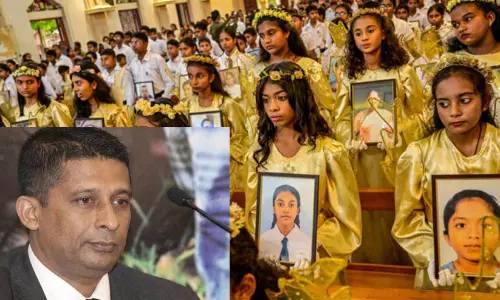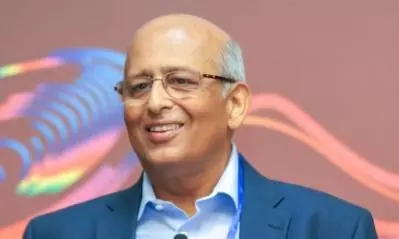
Omicron will not likely affect India the way Delta did: Top virologist
text_fields Top virologist Dr Shahid Jameel/Image via IANS
New Delhi: The new hyper-mutated Omicron variant of Covid-19 will not affect India as badly as Delta did early this year, yet the country cannot be complacent but must be careful and alert, as per top virologist Dr Shahid Jameel.
The Omicron variant, thought to be more virulent than its predecessor Delta, was first identified in South Africa in November and has since spread to more than 60 countries around the world.
"India in December 2021 is very different from India in March 2021," IANS quoted Dr Jameel, a visiting scientist at Ashoka University as saying.
"Both in terms of numbers of, you know, the vaccination percentage as well as exposure to the virus. India has had a very, very bad second wave. And because of that, the blessing in disguise is that many of us got exposed to the virus.
"I think even if we get high numbers of infections, the rate of severe disease rate of hospitalisation is going to be lower than what we saw in Delta," added Jameel, who is also a Fellow at Green Templeton College, University of Oxford.
Jameel said the national serosurveys have shown that a majority of Indians have already been exposed to the virus. So while "India, so far, has about 40-odd reported cases of Omicron and the rise in India has not been as fast as the rise in the UK".
He added that how the disease will manifest itself in the elderly and among those with weak immune systems remains to be seen."It's too early for that. So I think much more will develop in this story. But if you compare it to when Delta emerged in India, the situation is different. When Delta emerged, fewer people were vaccinated in India." Jameel said
Currently, in India, more than 50 per cent of the people over the age of 18 years have received both doses of the Covid, as per the Health Ministry.
Further, "the Delta wave was so bad in India that the National Sero survey showed about two-thirds of Indians got exposed".
Jameel also mentioned that more recent estimates from cities like Delhi and Mumbai showed that close to 90- 95 per cent of people have antibodies.
"So, antibodies and more importantly the immune memory that has developed in people over time, the T-cells are going to protect against severe disease," he said.
However, this should not make people "complacent", rather we "need to be alert", he cautioned, adding that the omicron figures in the UK "are frankly quite alarming".
"To achieve that level of mortality in a population that's heavily vaccinated means that they are looking at millions of people getting infected," Jameel said.Further, he added that it is high time that India starts thinking about rolling out boosters doses to vulnerable people.
"It's a misconception that the Covid vaccine protects against infection. It protects against severe disease," the acclaimed virologist said on claims that two doses of Covid vaccines are not effective enough to prevent Omicron.
"But science and data also show that boosters will give you better you know, higher levels of antibodies and higher levels of antibodies will protect from symptomatic infection."
However, the bigger priority for India is to get the second dose in people who have only one dose and get two doses in people who have no doses, Jameel said.























